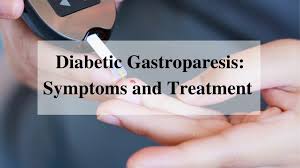Living with diabetes often presents complex challenges, one of which is gastroparesis—a condition that impairs the stomach’s ability to empty its contents properly. This condition can disrupt your digestion, leading to symptoms such as nausea, bloating, and erratic blood sugar levels. Thankfully, there are effective strategies to manage gastroparesis while maintaining control over diabetes. Expert solutions for gastroparesis diabetes treatment and delves into the role of herbal treatment for gastroparesis to improve digestive health naturally.
What is Gastroparesis?
Gastroparesis is a chronic condition where the stomach’s natural motility, or ability to move food, is impaired. This results in delayed emptying of food from the stomach into the small intestine, causing various digestive symptoms and complications. The condition, which literally translates to “stomach paralysis,” can significantly affect quality of life and requires careful management.
Related Articles: 10 Natural Remedies for Gastroparesis
Understanding the Digestive Process
In a healthy digestive system, the stomach muscles contract rhythmically to push food through the digestive tract. This process ensures that food is broken down and nutrients are absorbed efficiently. However, in gastroparesis, the stomach’s muscles or the nerves controlling them, particularly the vagus nerve, do not function properly. This leads to delayed gastric emptying.
Causes of Gastroparesis
Gastroparesis can result from several underlying conditions or factors, including:
- Diabetes: High blood sugar levels can damage the vagus nerve, a major contributor to stomach motility issues.
- Surgical Complications: Surgeries involving the stomach or esophagus may inadvertently damage the vagus nerve.
- Infections: Viral infections can disrupt normal stomach muscle function.
- Neurological Disorders: Conditions like Parkinson’s disease or multiple sclerosis may impair nerve function.
- Medications: Some drugs, such as opioid painkillers or certain antidepressants, can slow stomach emptying.
- Idiopathic Causes: In many cases, the exact cause of gastroparesis remains unknown.
Related Articles: Top 8 Diet Tips for Gastroparesis
Symptoms of Gastroparesis
Common symptoms of gastroparesis include:
- Nausea and vomiting
- Abdominal bloating and pain
- Feeling full quickly after eating
- Loss of appetite and unintended weight loss
- Fluctuating blood sugar levels
- Malnutrition due to poor digestion
Understanding the Connection Between Diabetes and Gastroparesis
Gastroparesis occurs when the vagus nerve, which controls stomach muscles, is damaged. In people with diabetes, chronic high blood sugar can damage this nerve, leading to delayed stomach emptying. This results in symptoms such as:
- Nausea and vomiting
- Feeling full quickly
- Unstable blood sugar levels
- Heartburn and bloating
Managing gastroparesis is vital for diabetes patients to prevent further complications and maintain a better quality of life.

Related Articles: Natural Home Remedies for Gastroparesis and Foods to Avoid
Expert Solutions for Gastroparesis Diabetes Treatment
1. Optimizing Blood Sugar Control
Maintaining stable blood sugar levels is key to managing gastroparesis. Work closely with your healthcare provider to adjust insulin or other diabetes medications to match your body’s needs, especially after meals.
2. Dietary Modifications
A tailored diet is critical in gastroparesis management. Key dietary changes include:
- Eating smaller, more frequent meals.
- Avoiding high-fat and high-fiber foods, as they slow digestion.
- Incorporating liquid-based meals like smoothies or soups, which are easier to digest.
3. Medications for Gastroparesis
Your doctor may prescribe medications such as:
- Prokinetic agents: These stimulate stomach muscle contractions to improve food movement.
- Antiemetic drugs: Help control nausea and vomiting.
4. Gastric Electrical Stimulation
For severe cases of gastroparesis, gastric electrical stimulation may be recommended. This procedure uses a small device to deliver electrical pulses to the stomach muscles, improving motility and reducing symptoms.

Related Articles: Discover the Top Natural Supplements for Gastroparesis Relief
The Role of Herbal Treatment for Gastroparesis
Natural remedies can complement conventional treatments and provide relief for gastroparesis symptoms. Here are some popular herbal treatments for gastroparesis:
1. Ginger
Ginger is known for its ability to soothe nausea and enhance gastric motility. Sip on ginger tea or take ginger supplements after consulting with your doctor.
2. Peppermint
Peppermint has antispasmodic properties that can help reduce bloating and stomach discomfort. Peppermint tea or oil capsules may provide relief.
3. Turmeric
Turmeric, with its active compound curcumin, possesses anti-inflammatory properties that may benefit those with gastroparesis. Use it in cooking or as a supplement.
4. Fennel Seeds
Chewing fennel seeds or brewing them into tea can help alleviate bloating and promote digestion.
5. Chamomile
Chamomile tea is a gentle remedy that may soothe the stomach and reduce inflammation.
Related Articles: Weight loss pills may lead to stomach paralysis, finds new study
Herbal Remedies for Gastroparesis
Gastroparesis, a condition characterized by delayed stomach emptying, can lead to uncomfortable symptoms such as nausea, bloating, and abdominal pain. For those seeking natural relief, herbal remedies offer a promising alternative. Ginger, renowned for its anti-nausea properties, is one of the most popular herbs for managing gastroparesis symptoms. Consuming ginger in tea or capsule form can help stimulate digestive motility, reducing the sensation of bloating and discomfort.
Another beneficial herb is peppermint. Known for its soothing effects on the gastrointestinal tract, peppermint can help alleviate stomach cramps and promote smoother digestion. Peppermint oil, taken in enteric-coated capsules, can reduce muscle spasms and enhance overall digestive function, making it a valuable option for gastroparesis sufferers.
Finally, turmeric, with its active compound curcumin, has been noted for its anti-inflammatory and digestive benefits. Turmeric can aid in improving gastric emptying and reducing inflammation in the stomach lining. Incorporating turmeric into meals or taking it as a supplement can be a gentle yet effective way to manage the symptoms of gastroparesis naturally. While herbal remedies can be helpful, it’s essential to consult with a healthcare provider to ensure they are safe and appropriate for individual health needs.
Lifestyle Tips to Enhance Treatment Outcomes
- Stay Active: Light physical activity, like walking, after meals can aid digestion.
- Stay Hydrated: Drink plenty of water throughout the day to support digestion and hydration.
- Monitor Symptoms: Keep a food and symptom diary to identify triggers and monitor treatment effectiveness.
When to Seek Medical Help
If you experience severe symptoms, such as frequent vomiting, dehydration, or difficulty managing blood sugar, seek medical attention immediately. Early intervention can prevent complications and improve your quality of life.
Conclusion
Managing gastroparesis alongside diabetes requires a multi-faceted approach, combining dietary changes, medications, and lifestyle modifications. Incorporating herbal treatments for gastroparesis can further support your journey toward better digestive health. By working closely with healthcare providers and exploring expert solutions, you can regain control of your digestion and improve your overall well-being.
Stay proactive in your treatment plan, and don’t hesitate to explore natural remedies alongside conventional methods for optimal results.




